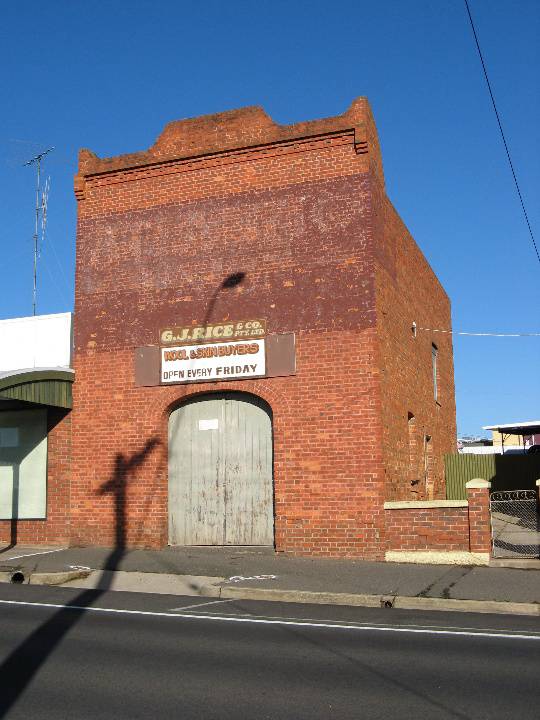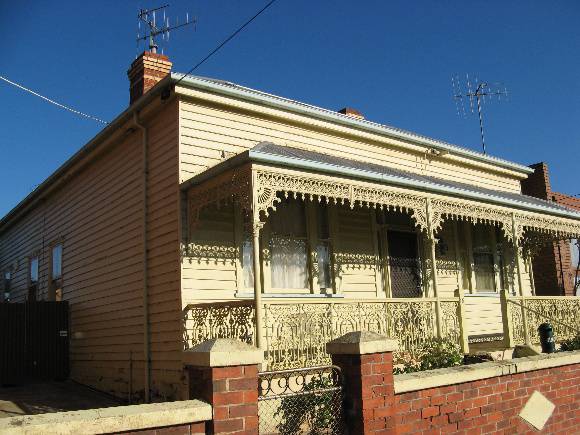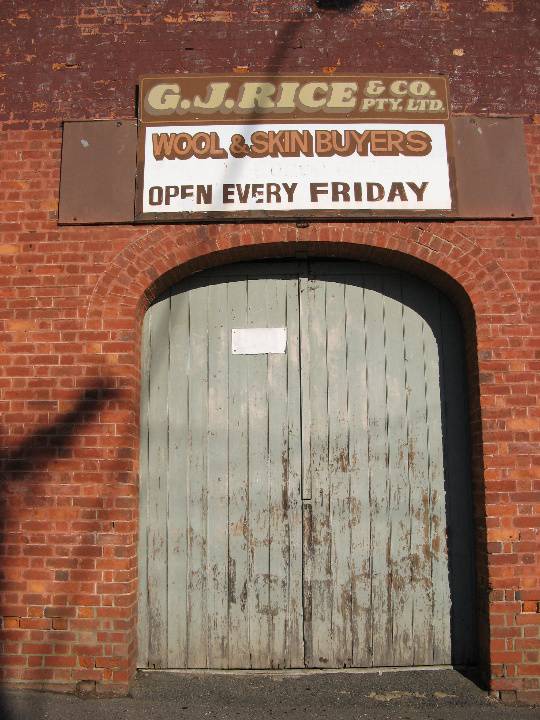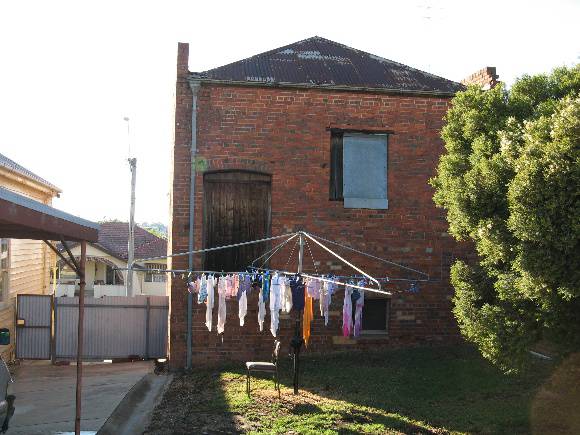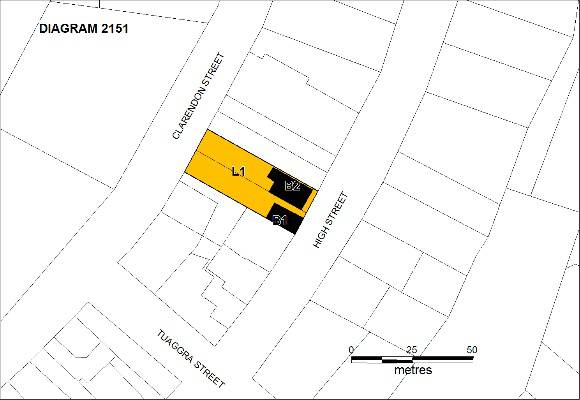| Back to search results » | Back to search page » |
|
CAB BUILDING AND HOUSE
Location177A-179 HIGH STREET MARYBOROUGH, CENTRAL GOLDFIELDS SHIRE
File NumberPL-HE/03/0069LevelRegistered |
|
Statement of Significance
The cab building and house in High Street, Maryborough were built in
the late nineteenth century by the horse cab proprietor Daniel Minahan
as his business premises and residence. They were built at the edge of
Maryborough's commercial precinct and at the beginning of the prestige
residential area. The house was built before 1885, and the adjacent
brick cab building in the early 1890s. There was also a single-storey
timber stable at the rear, but this has now been demolished. Minahan
operated a cab business in Maryborough, and is known to have had a cab
stand outside one of the hotels in High Street. The cab building was
later used by G J Rice & Co, whose name appears on a sign above
the entrance, as wool and skin buying premises. The cab building is a narrow, two-storey, rectangular plan, red brick
building with a corrugated iron roof. The front facade has a brick
parapet at the top, and an arched entrance with a pair of sliding
timber doors opening directly onto the High Street footpath. The
ground floor is open, which would have been a suitable space for the
storage of horse cabs, and there is a timber loft above. The ground
floor is now concreted. The house is a symmetrical single storey
weatherboard cottage with a hipped corrugated iron roof, and a
verandah across the front with a cast iron balustrade and frieze.
Internally it has a standard nineteenth century plan with a central
passage from front to rear.
How is it significant?
The cab building is of architectural significance, the cab building
and house are of historical significance and the site is of
archaeological significance to the State of Victoria.
Why is it significant?
The cab building is historically significant as a rare surviving
example in Victoria of a nineteenth century horse cab building, and is
a reminder of a means of transport, and of an industry, which was
essential until the twentieth century, and has now completely
disappeared. Such buildings associated with horse transport were once
extremely common, but few now surviving in the state. The cab building is architecturally significant as an intact example
of a now rare building type, a nineteenth century utilitarian
structure used as horse cab premises. The cab building and house are historically significant as a
representative and now unusual example of a small nineteenth century
business operation, with the owner living adjacent to his business premises. The site is archaeologically significant as it has the potential to
contain deposits associated with the former use of part of the site as stables.
Group
Residential buildings (private)
Category
House




